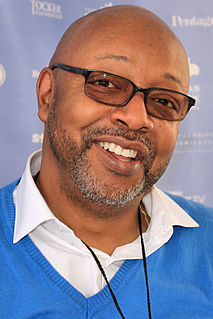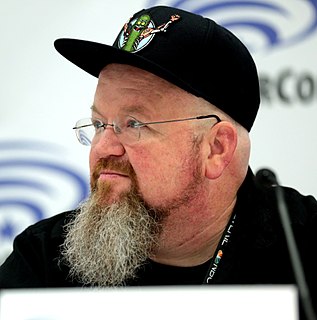A Quote by Seth Godin
Related Quotes
Acceptance. We want someone to look at us, and really see us—our physical flaws, our personality quirks, our insecurities. And we want them to be okay with every square inch of who we are. We’re always afraid we might be too needy or too much work. We put all these limitations on ourselves and our relationships because we’re afraid that we’re not really loved. That we’re not really accepted. We hide little pieces of ourselves because we think that might be the one thing that finally drives away the person who’s supposed to love us.
Too often we take blessings for granted, like the sun, the air, health, and opportunity. Or we accept favors, honors, and privileges day after day as did the lepers their newfound health, without a word of thanks. We would thank the person who gives us a seat in the bus, the person who offers a ride, the friend who picks up the check after dinner, the person who does the baby-sitting, or the boy who cuts our lawn, but do we express gratitude to Him who gives us all?
Psychoanalysis is often about turning our ghosts into ancestors, even for patients who have not lost loved ones to death. We are often haunted by important relationships from the past that influence us unconsciously in the present. As we work them through, they go from haunting us to becoming simply part of our history. (243)
Our jobs determine to a large extent what our lives are like. Is what you do for a living making you ill? Does it keep you from becoming a more fully realized person? Do you feel ashamed of what you have to do at work? All too often, the answer to such questions is yes. Yet it does not have to be like that. Work can be one of the most joyful, most fulfilling aspects of life. Whether it will be or not depends on the actions we collectively take.
I suspect that many of us, if given the chance to make one person in our lives love us more, would have no trouble in choosing where to point a finger. We are all needy, all vulnerable, all terrified that perhaps that person has an excellent reason to withhold affection. We shape our purposes to make ourselves worthy and often do not see until much later how it was love-or perhaps the lack of it-that both picked us up and dropped us off at crossroads.
A Student is the most important person ever in this school...in person, on the telephone, or by mail.
A Student is not dependent on us...we are dependent on the Student.
A Student is not an interruption of our work..the Studenti s the purpose of it. We are not doing a favor by serving the Student...the Student is doing us a favor by giving us the opportunity to do so.
A Student is a person who brings us his or her desire to learn. It is our job to handle each Student in a manner which is beneficial to the Student and ourselves.
I have felt the pain that arises from a recognition of beauty, pain we hold when we remember what we are connected to and the delicacy of our relations. It is this tenderness born out of a connection to place that fuels my writing. Writing becomes an act of compassion toward life, the life we so often refuse to see because if we look too closely or feel too deeply, there may be no end to our suffering. But words empower us, move us beyond our suffering, and set us free. This is the sorcery of literature. We are healed by our stories.
When we honestly ask ourselves which person in our lives mean the most to us, we often find that it is those who, instead of giving advice, solutions, or cures, have chosen rather to share our pain and touch our wounds with a warm and tender hand. The friend who can be silent with us in a moment of despair or confusion, who can stay with us in an hour of grief and bereavement, who can tolerate not knowing, not curing, not healing and face with us the reality of our powerlessness, that is a friend who cares.
Part of life is a quest to find that one essential person who will understand our story. But we choose wrongly so often. Over the ensuing years that person we thought understood us best ends up regarding us with pity, indifference, or active dislike. Those who truly care can be divided into two categories: those who understand us, and those who forgive our worst sins. Rarely do we find someone capable of both.






































